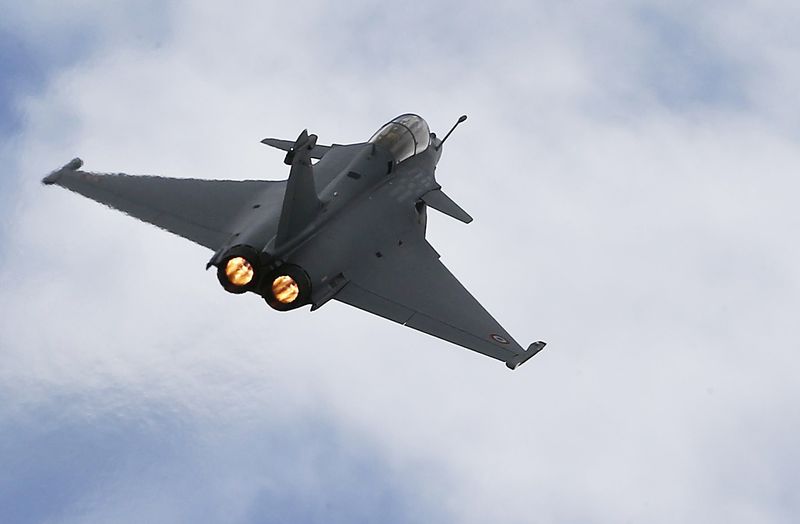SAP sued by o9 Solutions over alleged trade secret theft
Investing.com -- Dassault Aviation (EPA:AM) shares jumped over 5% on Wednesday after the French aerospace group reported stronger-than-expected full-year results, despite issuing a 2025 revenue forecast that fell short of market expectations.
The stock, which has gained around 40% year-to-date amid a broader rerating of the European defense sector, reacted positively to the earnings beat.
Revenues reached €6.2 billion, 4% above consensus estimates, driven largely by strong defense exports, which exceeded expectations by 15%.
Adjusted EBIT came in at €519 million, also 4% ahead of forecasts, supported by lower R&D expenses and favorable foreign exchange rates.
Earnings per share were 12% above projections, helped by stable financial results and a higher contribution from Dassault’s stake in Thales (EPA:TCFP).
Citi also highlighted a strong order intake of €10.87 billion, with a book-to-bill ratio of 1.7x, underscoring continued demand for Dassault’s aircraft.
Despite these strong results, the company’s outlook for 2025 introduced some caution. Dassault guided for €6.5 billion in revenues next year, well below consensus estimates of €7.2 billion.
However, its delivery projections were in line with market expectations, with 25 Rafale fighter jets and 40 Falcon business jets planned—slightly above Bloomberg consensus estimates of 24 Rafales and 38 Falcons.
While the revenue outlook disappointed, Citi analysts suggested that the in-line delivery guidance should provide some reassurance to investors.
That said, Dassault’s performance remains subject to broader geopolitical volatility, which could influence stock movements in the months ahead.
Morgan Stanley (NYSE:MS) analysts remain particularly cautious about the Falcon business, citing supply chain constraints and a limited backlog that could pose risks to delivery targets.
Net cash rose to €8.4 billion, up €1.1 billion year-over-year, primarily driven by advance payments on export Rafale contracts. This financial strength could provide the company with flexibility as it navigates uncertainties in 2025.
